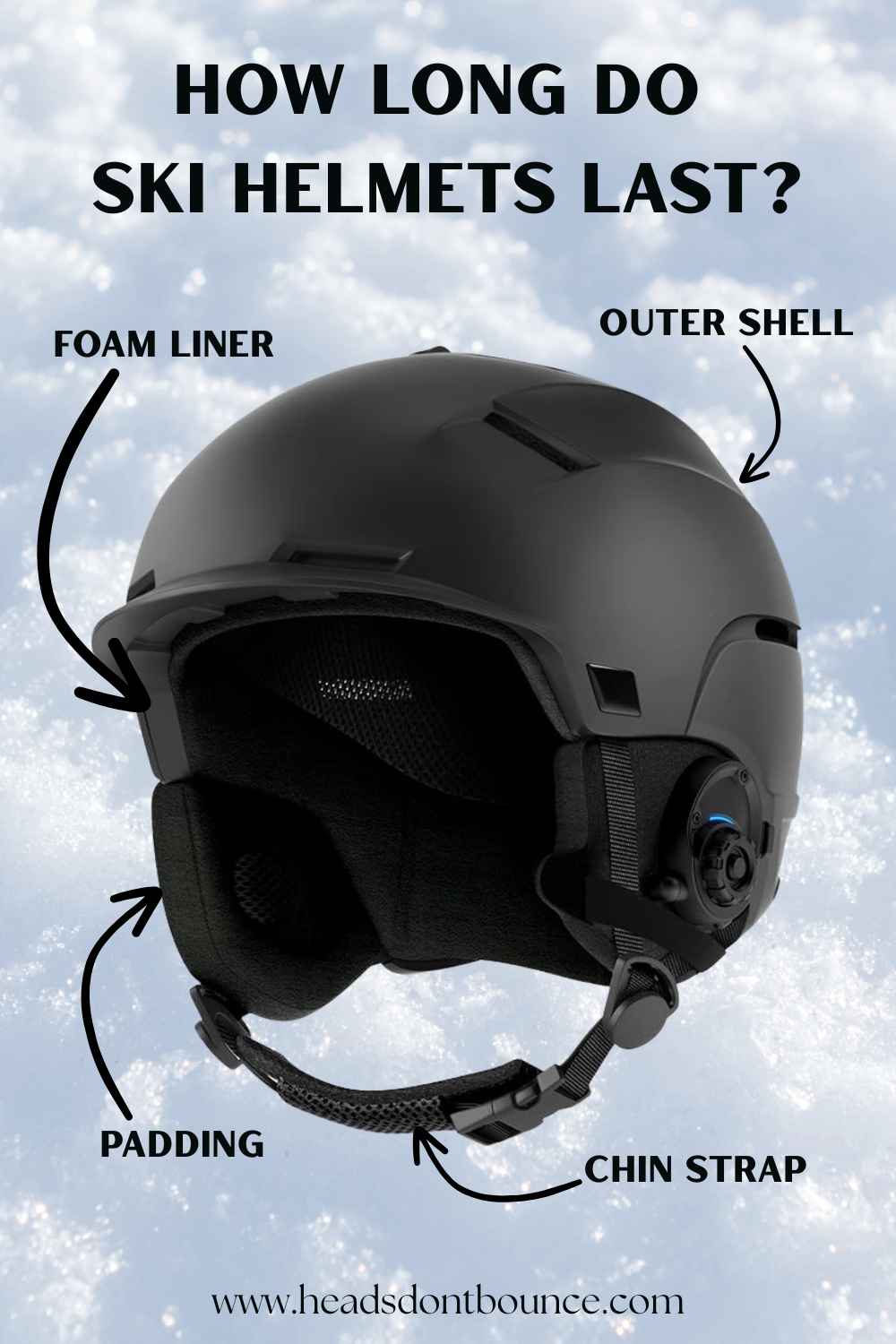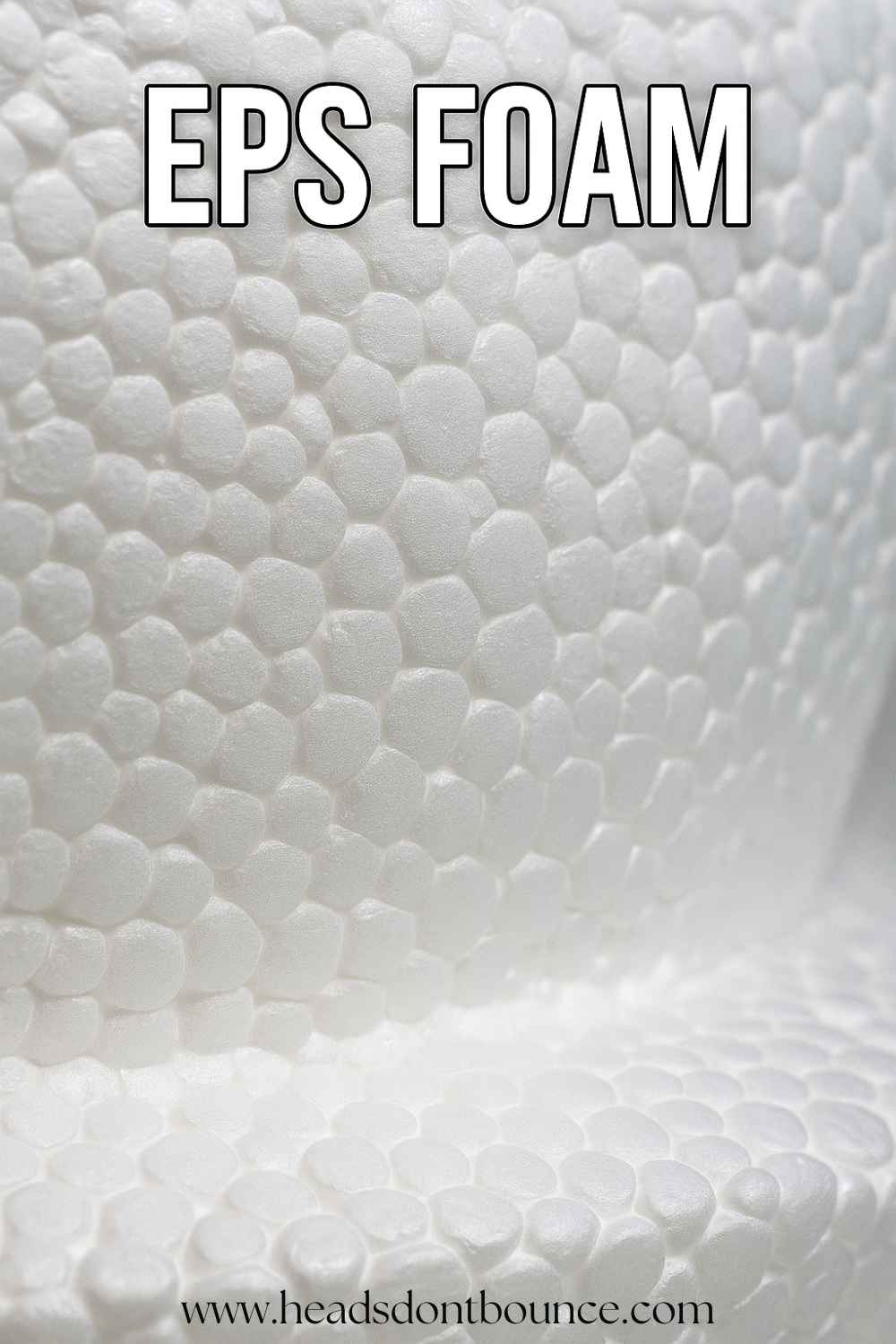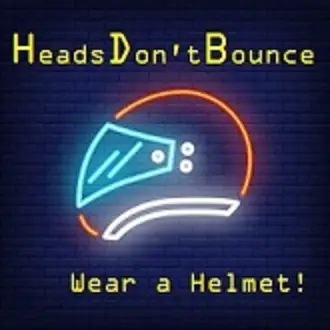How Long Do Ski Helmets Last? [Lifespan, Replacement, & Safety Guide]
Ski helmets last about 3 to 5 years. Replace a helmet immediately after a significant impact, even if there is no visible damage. Over time, UV exposure, sweat, and material degradation reduce its protective ability, making timely replacement essential for your safety.
If you ski once a year, your helmet might last longer. If you ski daily, you might need to replace it sooner. And if it’s been in a hard fall? Time to get a new one — no exceptions.

Disclosure: As an Amazon Associate, we earn from qualifying purchases. Disclosure Statement.
What Affects a Ski Helmet’s Lifespan?
Several things can make a ski helmet age faster:
- Usage frequency – more skiing means more wear and tear.
- Storage conditions – tossing it in a damp garage vs. keeping it clean and dry.
- UV exposure – sunlight slowly weakens the outer shell.
- Impacts – even a single hard crash can mean the helmet is no longer safe.
Related Article: Best Ski Helmets with Visors
What Are Ski Helmets Made Of?
Inside your helmet, there’s a foam liner that absorbs impact energy:
- EPS (Expanded Polystyrene) – lightweight, cheap, great protection… but it’s one-and-done after a big crash.
- EPP (Expanded Polypropylene) – thicker, more durable, can bounce back after multiple smaller hits.
Knowing your foam type is important — it tells you how cautious you need to be after impacts.


How Often Should You Replace Your Ski Helmet?
There’s no “milk carton expiration date” here. Most manufacturers recommend 3–5 years as a guideline. The ASTM F2040 helmet safety standard doesn’t set an expiry date but assumes regular inspections and proper care.
- If you ski daily, lean closer to 3 years.
- If you ski occasionally and store it well, you might stretch to 5+ years.
- If it’s been in a serious crash? Replace it immediately — no matter the age.
Recommended: Ski Helmets with MIPS
How Can You Tell If It’s Time for a New Helmet?
Replace your helmet if you notice:
- Cracks or chips in the outer shell
- Compressed or misshapen foam inside
- Fading or brittle surface from UV damage — a National Institutes of Health study explains how UV exposure degrades polycarbonate shells over time.
- Loose or damaged chin strap
- It’s missing modern safety tech like MIPS, WaveCel, Koroyd, or similar.

Why Technology Updates Matter
Modern ski helmets aren’t just prettier — they’re smarter. New technology like MIPS reduce rotational forces in crashes, lowering concussion risk. MIPS technology research shows that these systems can reduce certain concussion risks compared to traditional helmets. If your helmet predates these improvements, upgrading could literally save your brain.
Quick Lifespan Reference Table
| Helmet Type | Typical Lifespan | Replace After | Notes |
|---|---|---|---|
| EPS | 3–5 years | Any major impact | Can’t recover after crash |
| EPP | 5+ years | Severe shell damage or multiple hard hits | Can handle minor impacts |

FAQs
Q: Do ski helmets expire?
A: Not like food. Helmets don’t have a set expiration date, but UV exposure, wear, impacts, and tech changes make them less safe over time.
Q: Can I keep using a helmet with scratches?
A: Yes — scratches are cosmetic. If you see cracks, crushed foam, or shell damage, replace the helmet immediately.
Q: How do I store my ski helmet to make it last?
A: Keep it in a cool, dry place away from direct sunlight. Let it air-dry and never place it on a heater in the lodge.
Q: How long do ski helmets last?
A: Typically 3–5 years, depending on how often you ski, how you store the helmet, and whether it’s been in a crash.
More Resources
For more tips on staying safe on the slopes, check out the National Ski Areas Association safety programs.
Related Reads:
If you liked this post, why not share it with your friends.
